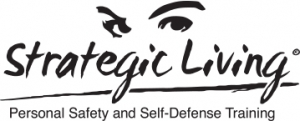Getting Support – Part 2
Today, November 11, is Veterans Day. The one day where we as a nation formally thank those who served our country with their military service. Parades, taking out old photos and uniforms, visits to memorials. We recognize all those who served. At the same time, as a nation we are less caring about veterans’ getting support they need.
For about 12 years (between 2003 and 2014) I worked with Dr. Wendy David, Dr. Ann Cotton, and the VA Medical Center in Seattle on the Taking Charge project. This 12-week self-defense program was for women veterans who were suffering from long-term, chronic PTSD as a result of sexual assault while in military service. (Unfortunately, the program ended when Dr. David retired.) If you are familiar with PTSD, you know it’s not pretty. Watch this short video for more on the effects and possible causes.
While this blog post not an exposition on PTSD, I have to note there’s a significant correlation between social support and the likelihood of an assault survivor developing PTSD. One commonality all the participants in Taking Charge had was a lack of support from those around them after their assaults. Our culture does come with a large victim-blaming component, and sorting out those who can be supportive from those who won’t is likely to be critical to your long-term health and happiness.
Last week I began outlining how to find those individuals who would be supportive, with my thumbnail sketch of what a supportive human would do.
- They listen.
- They believe you.
- They remind you it wasn’t your fault.
Last week’s post was on the first bullet point, listening. Today I’m moving on to the other two.
They believe you. Most women are assaulted by someone known to them, particularly in cases of sexual assault. They may be a friend, a co-worker, a classmate, a colleague, a family member. Because of that, others you know will also know that assailant. When you confide in someone in that same circle, it can get complicated. That person may be struggling to wrap their brains around what you are telling them, which may be totally counter to their own experiences with the assailant. They’re trying to figure out how someone they know as a kind and generous soul could have done something so wrong. We humans do not do well with that sort of cognitive dissonance. That can come out as questioning your account of what happened, which comes across as non-supportive. One option is to confide in someone from another social circle. Another is to cultivate relationships of support, which is the topic of next week’s blog post.
Finally, a supportive person will remind you that the assault was not your fault. Period. End of sentence. It is so common for the person assaulted (or targeted) to go over details again and again and again in their heads, trying to figure out if they could have, should have, done something different. Maybe there is something they could have done differently. It may or may not have made a difference. It’s overlooking the fact that someone else made that choice to harm someone. That’s right, the assailant is not like a fast-moving river into which you slip and fall. Rivers don’t make choices to injure or drown people. But people do. The assailant is the person who is responsible for their actions. If you are the listener, please make it a point to remind your friend/family member of that.
And, in a nutshell, that’s how you know someone is supportive. But, do you really want to wait until you are in need to find those trusted, supportive folks? No. Next week we’ll look at building supportive communities.
